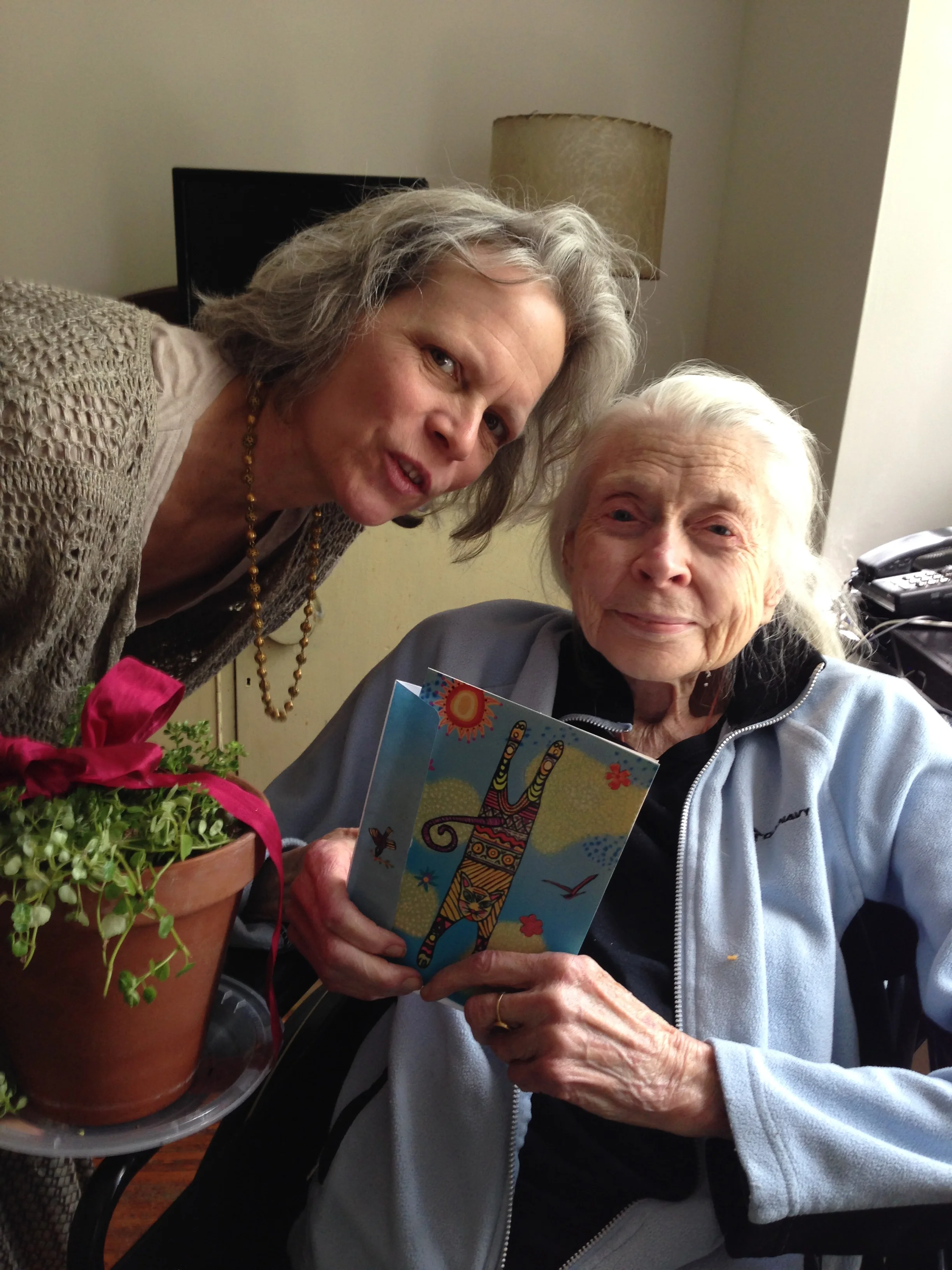Her family started to treat her like she flew over the coo coo's nest, which was reminiscent of their father's dementia symptoms, and she started to believe it too, expressed as crying and negotiating. And she fought it by advocating and asking for help.
My Birthday? That was Last Year
Rose has chronic lung disease which is gradually worsening and limits her activities to staying near or within her own apartment. Her family is aware that her health will deteriorate and sometimes assume that a dip in her health can not be restored. Over a period of two weeks I got calls from family and caregivers for confusion, shakes and not eating and was able to respond to calls of concern by bringing the medical evaluation to the home instead of sending Rose to one of the three nearest emergency rooms, two of which would have had no past medical records for her.
Rose had a reversible metabolic condition superimposed on her chronic lung disease. Emergency room physicians and specialists who are not trained in geriatrics would have viewed Rose in the simplest way possible. This is just a confused 93 year old with advanced disease and a family with high expectations. These health care providers had no prior knowledge of her past resiliency recovering from a hip fracture, pneumonia and a skin ulcer. They would not have viewed her medications which had gone from being a good idea to treat symptoms in the past to contributing to her present acute metabolic problem. In a hospital Rose would have been stereotyped as “nothing more we can do.”
That’s not what I saw. I know that one day I will have to say to her two sons, “I will be here until the end, because we can’t reverse the disease,” but this time I could distinguish that reversing the delirium was achievable. In order to do that, I made home visits weekly including one on a Sunday afternoon with four family members and two caregivers which lasted three hours and was followed by daily proactive follow up phone calls. Three days before her 94th birthday, I called Rose and she said, “My birthday? That was last year.” Even with a delirious mind, Rose herself wasn't sure she would live to her next birthday but she and her family put trust in an old fashion primary care relationship with a doctor skilled to know that we can treat this and we can do it at home.
Surrogate reporters
Geriatricians often take care of older adults who cannot directly tell the doctor what they are experiencing, so these doctors may need to get information about changes in behavior or body function from surrogate reporters such as children, spouses or other caregivers. Surrogate reporters provide the doctor with their observations of the patient when the patient can not communicate their symptoms at all, or to fill in the missing details about when and how often something is occurring. In effect one person is telling the story of someone else's health through observation. This week, I was dealing with surrogate reporters, caregivers, who were using a psychological theory of human behavior called explanatory attribution instead of providing me with an exact report of what is going on with a sick homebound geriatric patient. Instead of directly answering my questions, they gave me their explanations for why she was coughing, not eating, sleeping too much, and not sleeping.
A caregiver who is a surrogate reporter using explanatory attribution to give information to the doctor is dangerous. It is the doctor's job to repeat the question until the doctor gets a descriptive answer instead of an explanatory answer. Explanatory attribution by those without knowledge give the doctor their opinion of the answer.. Family members and caregivers can not diagnose or treat because they are not trained in how complex diseases that the patient is known to have interact with each other, or what diseases she is likely to get, or what diseases can't possibly be responsible for the problem at all. Diagnosing is a complex micro-multi step process based on probability and not based in common sense. Explanatory attribution could never be used for making a diagnosis or adjusting a treatment plan
Communication about Pressure Ulcers. Improving Care and Reducing Risk
On June 12, I gave a medical grand rounds lecture at Trinitas Hospital in Elizabeth NJ on pressure ulcers to about 30 resident physicians and 10 attending physicians. The emphasis was on prevention and situations where prevention requires more than standard care. Pressure ulcer prevention is dependent on the team of doctors and nurses at the bedside. Wound care consultants have an obvious conflict of interest in preventing ulcers, yet hospitals are still reimbursed highly for having a wound care center and consult service. The ability to examine a pressure ulcer, just like doing a heart or lung exam is what allows a bedside medical team of young doctors in the hospital to at least not make a pressure ulcer worse before they can get expert help. This situation occurs when they are caring for a patient who comes from a nursing home or home with a pressure ulcers. I talked about how much easier it is to prevent a pressure ulcer than to treat the secondary complications such as cellulitis, osteomyelitis, sepsis and pain.


